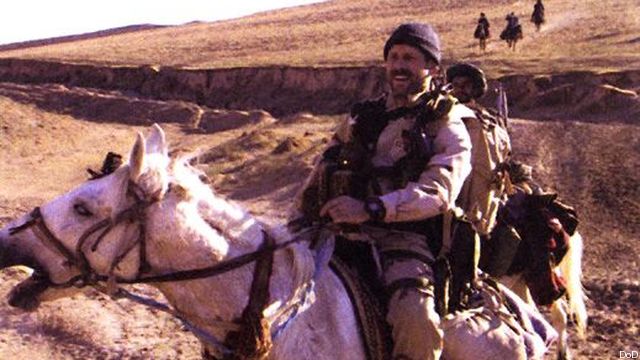Special Operators Try Again To Get More Dough, Control; Battles Likely With Hill And JCS
Posted on
 WASHINGTON: After a decade of war in which they played a key role and were rewarded with a doubling of their forces and budget, Special Operations leaders want still more — more people, more money and more authority to decide where their troops go and what they do.
WASHINGTON: After a decade of war in which they played a key role and were rewarded with a doubling of their forces and budget, Special Operations leaders want still more — more people, more money and more authority to decide where their troops go and what they do.
Those goals are likely to clash with the conventional military’s traditional lines of authority and the certainty that their force structure and funding will drop as Washington struggles with a soaring national debt.
The Special Operation Forces’ (SOF) view of their importance in the future national security environment also could conflict with the conventional forces search for justification to keep as many troops as possible as well as a bigger slice of the shrinking defense budget pie.
The SOF view of the U.S. future national security world was presented during a two-day conference held by the Defense Strategies Institute that ended Wednesday.
“Today, SOF is central to everything DoD is doing,” said Lt. Gen. Charles Cleveland, commander of Army Special Forces Command.
“SOF clearly is the force of choice for the future,” said retired Army Lt. Gen. Frank Kearney, a career special operations officer whose last job was deputy commander of Special Operations Command (SOCOM).
Gary Reid, a retired career Army special forces officer who now serves as the Pentagon’s chief for Special Operations and Low Intensity Conflict, noted the vital role SOF has played in the counter-terrorism and counter-insurgency fights in Iraq and Afghanistan. He joined the others in predicting that status would continue even after U.S. combat forces leave Afghanistan in 2014.
Although the troops under SOCOM have doubled during that decade of war to about 70,000 today, Reid said the command expects to add another 5,000 men to meet the seemingly ever-growing demand for special operators. Those forces, plus a steady demand for more weapons and high-tech equipment, clearly would require more funding in an era of declining defense budgets.
Army Lt. Gen. John Mulholland, current SOCOM deputy commander, was more reserved in stating the value of SOF in the coming national security environment. Still, in presenting the “vision” of his boss, Navy Adm. William McRaven, he set the stage for another potential conflict between the elite special operators and the leaders of the four armed services.
The most controversial of McRaven’s goals for SOCOM was a quest for the authority to move SOF units to any part of the world where the command sees a looming threat without coordinating with the regional combatant commander, and more direct control over those forces while deployed.
Mulholland said the authority to move forces would allow the command to “be ahead of the problem.”
McRaven also wants to be able to exercise more authority over his special operators once they are in the CoCom’s theater, Mulholland said. Although SOCOM is charged with recruiting, training and equipping special forces, the command loses any authority over them when they are on the CoCom’s turf. To change that, McRaven, a combat-tested Navy SEAL, wants to have more control over the Theater Special Operations Commander (TSOC) and give those commanders more resources and more authority over what SOF forces do in the theater.
Those proposals clash with the traditional chain of command and would take away some of the authority now held by the four-star Army, Navy, Marine Corps and Air Force officers who comprise the Joint Chiefs of Staff. The CoComs, the regional commanders, may well resist.
Also, McRaven’s proposals are virtually the same ones unsuccessfully floated two years ago by McRaven’s predecessor at SOCOM, retired Adm. Eric Olson. They were strongly opposed by the Joint Chiefs and rejected by the congressional Armed Services committees, which would have to change current law to grant SOCOM those greater authorities.
It is unlikely the current service chiefs would be any more willing to change the traditional rules.
The conference also revealed another potential area of conflict between SOCOM and the conventional forces, over who should have the primary role in the growing task of training and advising security forces of developing friendly nations. The SOF officials said they should continue to dominate a mission that Army Green Berets and, to a lessor extent, Navy SEALS conducted for decades before 9-11.
But with the pending end of major fighting in Afghanistan, the conventional forces, particularly the Army, are looking at those training missions as a way to keep their troops occupied and relevant, and requiring more funding.
Although Reid dismissed the likelihood of a conflict, by noting “there is a lot of unmet demand,” competition for declining resources tends to create conflict.
Subscribe to our newsletter
Promotions, new products and sales. Directly to your inbox.
